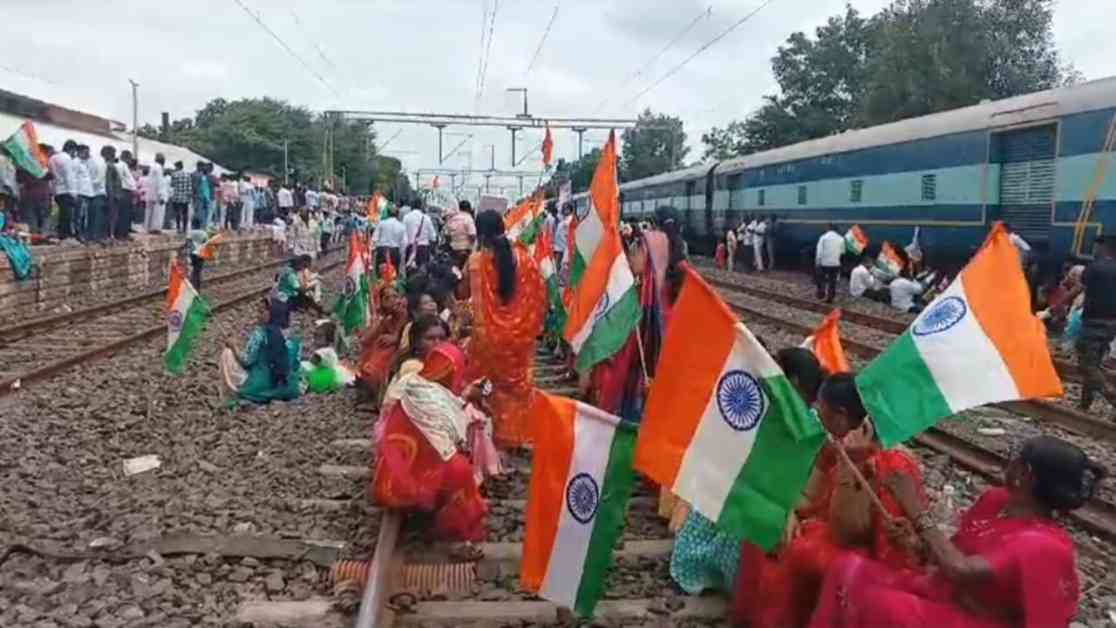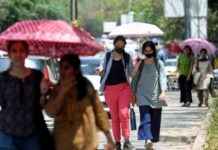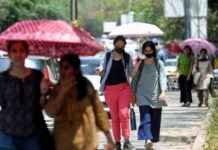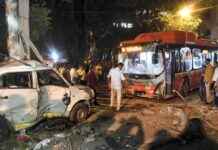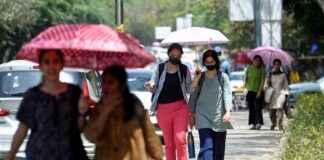Demand for Improved Infrastructure: Puntamba Villagers Stage Rail Roko Protest
Local residents and villagers of Puntamba and surrounding small villages in Maharashtra recently staged a rail roko protest at Puntamba Junction railway station on the Daund-Manmad railway line. The protest lasted for three hours and was initiated to address various demands of the community.
The primary demand of the villagers has been to restore halts for trains at the Puntamba station. According to a letter and petition submitted by the villagers, the railway station has been operational since the British era, with all trains previously halting at this station. However, since the COVID-19 period, only one DEMU train has been stopping at the station, causing inconvenience to the residents and pilgrims from the surrounding areas.
The villagers have expressed their frustrations with the railway administration’s arbitrary decisions over the past four years, which led to the removal of halts for up and down trains running from Puntamba Junction. Despite numerous attempts to communicate their demands to authorities such as the DRM Pune, GM Central Railway, and Rail Bhavan, the villagers have not received a satisfactory response.
Puntamba village holds significant religious and medical importance, with attractions such as the shrine of the revered saint Changdev Maharaj, the pilgrimage site of Chidambar Swami, and the country’s best hospital for paralysis patients. The railway services play a crucial role in providing safe and affordable transportation for both pilgrims and patients seeking medical treatment in the area.
The villagers highlighted that assurances made by the railway management during the laying of a railway line from Puntamba to Shirdi have not been fulfilled, prompting them to stage the Rail Roko protest. They emphasized that the consequences of their protest, whether positive or negative, should be the responsibility of the railway administration.
During the protest, which was carried out peacefully without any damage to railway property, the villagers were able to convey their demands effectively. Following the protest, the railways have agreed to consider halting five trains at Puntamba station in response to the villagers’ requests. Divisional Railway Manager Indu Dubey also engaged in a conversation with the leader of the protestors, Dr. Dhananjay Dhanwate, over the phone to address the concerns raised.
The coordination between the RPF deputy security commissioner Sunil Chate, Ahmednagar assistant divisional engineer A Trivedi, and the villagers played a crucial role in ensuring a peaceful resolution to the protest. Commercial inspector Ashok Yadav provided a written assurance to the village sarpanch Swati Pawar and deputy sarpanch Nikiti Jadhav, leading to the protestors vacating the tracks.
In addition to the demands related to train halts, the villagers also brought attention to other infrastructure issues, such as poorly designed underpasses on the Shirdi-Daund-Manmad rail route from Puntamba Junction. These underpasses have created difficulties for the movement of passenger buses, school buses, farmers’ tractors, and large containers, impacting the daily lives of the local citizens.
The villagers highlighted the need to resume the operation of all passenger trains that previously halted at Puntamba station before the COVID-19 pandemic, including trains like the Maharashtra Express, Jhelum Express, Goa Express, and the newly started Amravati-Pune train. They emphasized the importance of providing safe travel facilities for thousands of passengers in the region.
In conclusion, the Puntamba villagers’ rail roko protest shed light on the pressing infrastructure and transportation needs of the community. The peaceful demonstration and subsequent discussions with railway authorities have paved the way for potential improvements in train halts and infrastructure development at Puntamba Junction. The villagers’ determination to voice their concerns and seek solutions for their demands exemplifies the importance of community engagement in driving positive change.
